
by Jessica Hughes | Apr 21, 2023 | Travel
by Jessica Hughes

 We’re not throwing shade your way, but it is that time of year when Coloradans love their patio time, taking in the sunsets, and cool summer evenings. But we all know that the sun is intense at our elevation. That’s where a good set of shades, not just for your eyes, but for your home as well, is a good investment.
We’re not throwing shade your way, but it is that time of year when Coloradans love their patio time, taking in the sunsets, and cool summer evenings. But we all know that the sun is intense at our elevation. That’s where a good set of shades, not just for your eyes, but for your home as well, is a good investment.
Family owned and operated for several generations, Cherry Creek Shade & Drapery (CCSD) opened in 1968 by Kelcy Kershner’s grandmother. Then bought by her parents, the company has continued to operate as one of the top window treatment professionals along Colorado’s Front Range ever since. Kershner, an interior design consultant for the company, has been running the business with her dad, Doug Kershner, and her sister, Ashley Kershner, and loves the level of service their company is able to provide its clients.
Aside from their well-run family business, CCSD prides themselves on catering to their client’s personal style and needs. As opposed to big box stores where you might not get the personal attention you require, they provide an additional level of service and consideration. “We visit your home and work to cater to your personal style,” says Kelcy. “We offer suggestions and guide our clients through the process — treating it almost like an artform.”
Design, install, and repair. CCSD does it all. Their free in-home consultations are the ideal way to start your journey in picking out your interior or exterior window treat ments with a m
ments with a m aster installer alongside of you during the entire process. “Working with a personal designer that can offer recommendations and professional input, is helpful when it comes to making those hard decisions,” says Kelcy. “Not having to do all this on your own is an important component to this investment.”
aster installer alongside of you during the entire process. “Working with a personal designer that can offer recommendations and professional input, is helpful when it comes to making those hard decisions,” says Kelcy. “Not having to do all this on your own is an important component to this investment.”
Their in-house installers are professionally trained and come with years of experience. In fact, Ashley Kershner was named the first female master installer in the state of Colorado in 2012. “Our designers work to hand select almost everything for you including draperies, soft goods, custom pillows, exterior roller shades, and any kind of window covering, etc.,” says Kelcy. “We match our recommendations to your personal style and preferences.”
Plus, CCSD has spent years creating the largest inventory of products from some of the top name brands for window treatment and fabric manufacturers in the industry. Clients can shop their large showroom of products and fabrics, with over 100,000 fabrics to choose from, making it easier for your home to fit your personal style and taste. And with their variety of products to select from, it makes sticking to budget an achievable goal. And for the eco-conscious, a lot of their products focus on energy efficiencies such as using skylight coverings, cellular shades, thermal lining to draperies, and more.
So, stay cool this summer with custom window treatments that reflect your style and budget with Cherry Creek Shade & Drapery. Cherry Creek Shade & Drapery is located at 2438 E Sixth Ave in Denver. Visit www.cherrycreekshadesanddraperys.com for more information.

by Jessica Hughes | Apr 21, 2023 | General Featured
by Jessica Hughes

Cycle instructor, Allissa Benson, wins ClassPass’ Best Instructor 2022 Award.

Instructor Allissa Benson leads her students through a 45-minute energetic workout.
Local Denver indoor-cycling studio, High Ride Cycle, pedals its way to two national Best of ClassPass awards as the fitness craze of indoor cycling makes its way to the Mile High City.
ClassPass, a monthly membership platform providing access to thousands of studios, gyms, spas, and salons, recently announced their Best of ClassPass Awards and High Ride Cycle was among the winners. Despite such a competitive fitness market, High Ride Cycle beat out studios across the country with cities like L.A. and NYC that dominate this sector of the fitness world.
The “Best of” Awards recognize and honor the top five nominations across multiple categories including Best Wellness Business, Best Fitness Studio, and Best Instructor. This year, Denver’s High Ride Cycle is the only studio to bring home two awards: Best Fitness Studio and Best Instructor.
“It is incredible that we were selected among thousands of studios, and I am humbled to receive best instructor in the nation.,” says Allissa Benson, winner of ClassPass’ Best Instructor 2022 Award and VP of Marketing at High Ride Cycle. “It feels great to be recognized on this level.”
Known by the community for her tenacity, contagious passion, and enthusiasm, Benson’s 45-minute class is often waitlisted and defined by riders as an inspiring and intense experience.
“Winning this award means the world to me,” said Benson. “I pour my life and soul into what I do, and it validates my sense of purpose, affirms that I’m in the right place, at the right time. It is breathtaking to know that the people that inspire me every single day, are also inspired by me.”
Classes at High Ride Cycle are rhythm-based cardio incorporating weights and resistance for a full-body workout. The fitness experience combines choreography, music, lights, and a whole lot of personality for a 45-minute workout that is approachable for all levels. “It’s like a dance

High Ride Cycle wins ClassPass’ Best Fitness Studio Award 2022.
party on a bike,” says Benson. “The room is dark with a wild lighting system and loud music. It’s so immersive you forget how hard you are working.”
But Benson explains that what sets them apart from other cycle studios is their community. “There is a welcoming energy as soon as you arrive at the studio,” says Benson. The studio also doesn’t talk numbers. There is no scoreboard keeping track of calories or heartrate, which Benson also says separates them from other cycle studios.
“We don’t talk about output or measurement. There is no leader board,” says Benson. “This creates an environment that makes everyone feel welcome.”
For newcomers, don’t be intimidated. Benson says a lot of what they teach in every class is for first timers. “We make our new riders feel welcomed and supported,” says Benson. “We are constantly focused on the newcomers and creating the best experience for them.”
She also explains it takes about three to five classes to get into the groove. And says their new rider special supports that with five classes for $25. “That’s how long it takes to get used to our lingo.”
When High Ride Cycle opened its first location in Sloan’s Lake, founders Megan and Scott Hanson committed themselves to teaching a one class format with hopes of being well received. Today, the Hanson’s have surpassed their expectations with 5 “Best of ClassPass” awards under their belt, two thriving studio locations, nearly 30 energetic instructors, and plans to open a third location in Denver University’s neighborhood this spring.
For more information about High Ride Cycle, please visit highridecycle.com.
High Ride Cycle Locations:
High Ride Cycle, Sloan’s Lake
1711 Sheridan Boulevard A
Edgewater, CO 80214
High Ride Cycle, Northglenn
2145 E. 120th Ave. H
Northglenn, CO 80233
High Ride Cycle, University
(coming soon)
1316 E. Evans Ave. 150
Denver, CO 80210
Photos provided by High Ride Cycle

by Valley Gadfly | Apr 21, 2023 | Main Articles
With Colorado River Sapped By Drought, Denver, Suburbs Are Scrambling For Water
by Glen Richardson
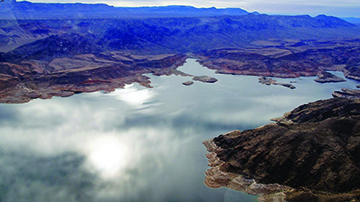
Lake Mead In Need: With the Colorado River at historic lows, Lake Mead Reservoir may not have enough water to generate hydropower, which would have a devastating impact on Denver.
Denver has a water crisis! The city and surrounding suburbs are running out of H2O. Why? Drought and climate change are draining the Colorado River dry. The river and watershed declined 20% this century. In 2021 the first-ever federal emergency water shortage declaration was declared. The lines of supply and demand for the Colorado River were crossed in 2000. Colorado and other western states were taking more water than the river had to give resulting in drainage of the two biggest reservoirs in the country, Lake Mead and Lake Powell.
It’s doubtful that all 1,450 miles of the Colorado River will turn to dust. But Lake Mead and Lake Powell are at historic lows. If water levels dip much lower, Colorado’s northernmost reservoir won’t have enough in the tank to both fill Lake Mead downstream and generate any hydropower, which would have devastating effects on the electricity grid to our city-state, plus a half-dozen other western states.
So far Colorado has been able to meet the water needs of Denver’s 5.8 million Front Range residents. But as the population surges while climate change escalates, Denver Water and suburban cities are suddenly scrambling to secure and shore up supplies. Denver Water gets about half of its supply from the Colorado River system. Water for more than one million homes on the Front Range could be lost and thousands of acres of farmland on the Western Slope and Eastern Plains may go dry. Remember, Colorado is also legally required to supply water to downstream states.
Water For Denver Water

Creek Flow Improved: A stretch of Cherry Creek that flows through Denver was restored at the end of 2021. Stormwater runoff and water quality was reestablished after eight-years of work.
Denver Water — the city’s chief water utility — collects rain and snow across a 4,000-square-mile area — capturing about 94 billion gallons in an average year. Since half of Denver’s drinking water comes from tributaries of the Colorado River on the west side of the Rocky Mountains — and the river basin has experienced a megadrought from the last two decades — the utility and the city are preparing for a future of increasing scarcity by diversifying water sources and ramping up conservation and efficiency efforts.
Summit County’s Lake Dillon Reservoir — Denver Water’s man-made and owned reservoir — is one of the largest sources of drinking water for Denver. With surging population growth in metro Denver, it may soon leave Dillon high and dry during most summers. Experts predict between 19 and 24 dry years during the next 26-year period. By late summer the utility begins piping water out of Dillon Reservoir via the Roberts Tunnel — a 23-mile pipe that runs under the Continental Divide and into the North Fork of the South Platte River — delivering it to Denver Water.
In June of last year, the city and county of Denver and the U.S. Army Corps of Engineers started moving forward on a $550.3 million project to improve the South Platte River and its tributaries. The work aims to restore a highly degraded river and boost habitat while reducing flood risks along the river. Also, a stretch of Cherry Creek that flows through Denver — between E. 6th Ave. on the North and Colorado Blvd. on the east — was restored at the end of 2021 after eight-years of work. The finished work improves stormwater runoff and water quality. Further, wildlife habitat and recreation were enhanced. In addition, Chatfield Dam — originally built for flood protection — is now also being used for water storage. Denver Water maintains a storage pool of more than 27,000 acre-feet. Water storage at Chatfield is also helping Centennial, Castle Rock, and Castle Pines supply their growing populations.
Serious Suburb Steps

Turf Tradeoff: Denver and suburban cities are focusing on turf replacement plans as the next reservoir of water. Adoption is just beginning but it’s seen as the cheapest, fastest, most reliable new supply.
Denver’s suburbs — the center of housing sprawl — continue to boom, creating a scramble for sustainable water supplies as they realize that they’re running out of water. Communities such as Aurora, Arvada, and Castle Rock are taking serious steps to meet current demands, recognizing that water supplies are likely to worsen. They face higher water prices, dwindling supply, plus older collection and treatment systems.
Aurora no longer allows grass in medians or decorative spots at offices, plus no home lawns front or back. Aurora has also banned new golf courses. Aurora Water will buy existing turf plus design a low-water garden for free, and pay material costs up to $3,000 for 500-sq.-ft. Arvada has yet to ban turf but has doubled connection fees. Fast-growing Castle Rock, however, has banned turf in front yards of new homes and is offering developers steep fee discounts for water-saving. Without a turf ban, Denver Water is working with the city on updated building codes that may result in stronger turf limits. Denver is also considering a cap on irrigation at 7.5 gallons of potable water per square foot.
Lastly, a new turf replacement program is set to roll out statewide this year. It will pay homeowners to convert some of the grass in urban and residential yards into more water-efficient landscaping. It is the first time the State of Colorado had dedicated funds expressly to turf replacement. The bottom line: Denver and Colorado are focusing on turf replacement programs as the city-state’s next reservoir of water. For the foreseeable future it is likely to be the cheapest, fastest, and most reliable form of new supply.
The Heat Is On
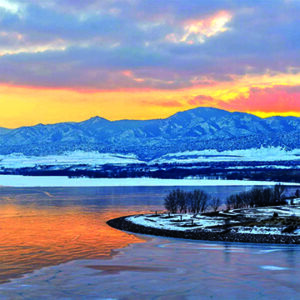
Chatfield Storage Space: Built as a flood shield, Chatfield Dam is now used for water storage. Denver Water keeps 27,000 acre-feet. Centennial, Castle Rock, and Castle Pines also save water.
Average temperatures in Denver and statewide have increased by 2.0°F over the past 30 years, according to the Colorado Water Conservation Board. However, heat waves are becoming more common, snow is melting earlier in spring, and less water flows through the Colorado River.
Furthermore, the frequency and intensity of heat waves are increasing even in places with cooler average temperatures. Warmer temperatures will affect evaporation rates in our rivers, streams and reservoirs, possible making less water available for beneficial use.
Recent wet weather hasn’t ended the drought, and won’t cure the driest period in the past 1,200 years. Moreover, researchers say the state is likely to see 50% to 60% less snow as the next century approaches. Less stream flow in Colorado probably also means the Centennial State will increasingly look more like Arizona and New Mexico.
Trio Of Neighboring Cities Face Dire River Reckoning
As Valley communities scramble to meet the needs of residents as water withers in the Colorado River, a proposal by the Biden Administration would almost entirely cut off river deliveries to Phoenix, Tucson, and Las Vegas. That’s the option unless California agrees to proposed equal cuts for all three Colorado River basin states. The proposals give Secretary of Interior Deb Haaland authority to cut water use on the river.

by Charles Bonniwell | Apr 21, 2023 | Main Articles
‘No One Is Above The Law’ — Except The IEC
PART II
by Charles C. Bonniwell
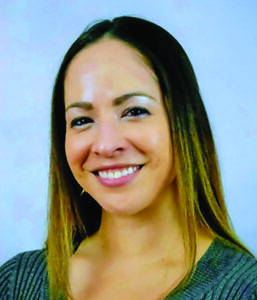
Selina Baschiera, Chair

Annie Kao
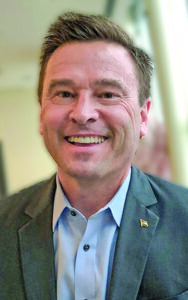
Cole Wist, Vice Chair
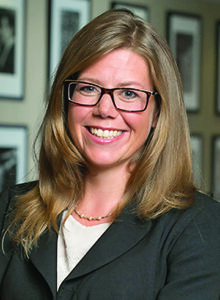
Sarah Mercer
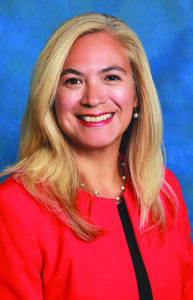
Elizabeth Espinosa Krupa
The IEC Commissioners: It is argued that persons with strong unethical traits often volunteer for unpaid ethics panels in order to hide their own potential improprieties. Critics have opined that is particularly true of the Colorado Independent Ethics Commission which has successfully exempted itself from all laws and ethical restraint other than expressly found in in the Colorado State Constitution.
President Theodore Roosevelt in his presidential address to Congress in 1903 stated that no one was above the law, but he had never encountered the Colorado Independent Ethics Commission (the “IEC”).
It was formed December 31, 2006, after passage of Amendment 41 to the State Constitution which voters thought to watch over excessive gifts to politicians. The IEC likes to portray itself as having “no investigators, little authority” (The Denver Post published January 3, 2016). But any citizen who has ever encountered the IEC as a target would never concur.
Dirty Tricks Operation
As indicated in our April 2023 edition, the IEC has grown into a massive dirty tricks operation where savvy political operatives from both parties can wreak havoc on the lives of their political opponents. Due to a decision by the Colorado Supreme Court, the IEC now has the ability to go after any citizen who comes under the very broad heading of “public officers, members of the general assembly, local government officials [or] government employee” who is subject to any type of “standards of conduct” however that is defined. The group covered by the definition is potentially hundreds of thousands of Coloradans, which is referred to as the “Target Group” of the IEC.
Once people begin to understand the incredible breadth of the IEC, jealous boyfriends, vengeful ex-spouses, unscrupulous business competitors, and shady lawyers will learn to manipulate the IEC system to attack and greatly harm anyone in the IEC’s Target Group. That is if they have friends inside the IEC.
Supreme Court Wreaks Havoc
The Colorado Supreme Court ruled in Gessler v. Smith (2008) that the IEC could force the one-time Colorado Secretary of State Scott Gessler to appear before its tribunal and fine him on the basis of a complaint by his political opponents that he used his state provided discretionary funds to help partially pay for a trip to Florida to speak at a” National Election Law Seminar” before the Republican National Convention. The claim was that he misused $1,456.89 public funds would normally be a criminal matter. Gessler’s political opponents in fact sent a letter to the applicable chief of police and the district attorney who apparently found the claims to be spurious and declined to charge the Secretary with any wrongdoing.
Prior to the IEC that would have the end of the matter but Gessler’s opponents also filed the same complaint letters with the IEC which to Gessler’s shock claimed it had jurisdiction. The basis of the jurisdiction was the claim that Colorado law holds in C.R.S. section 24-18-103 that a public office is a “public trust” and “that [a] public officer shall carry out his [or her] duties for the benefit of the state.” The IEC claimed the trip was more partisan or personal in nature and fined Scott Gessler $1,278.90. Gessler’s fees in fighting the IEC were over a half million dollars.
Pandora’s Box
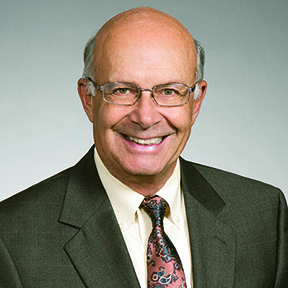
Insider: Bernie Buescher, a shadowy lawyer, is believed by those in the know to be an expert in the dark arts involving the IEC.
By that decision the Colorado Supreme Court opened an enormous Pandora’s box which vastly exceeded what any voter thought they were approving when they voted for Amendment 41. There are now literally tens of thousands of cases that can be brought before the IEC every year.
The key, however, to the IEC scam is that you must have an “in” at the IEC or know someone who does like lawyer and former interim Secretary of State Bernie Buescher. The IEC has only one investigator and the IEC tribunal meets only once per month, thus it can take very few cases. It has rejected almost 90% of the cases brought before it. Under Amendment 41 the IEC “may dismiss frivolous complaints without conducting a public hearing. Complaints dismissed as frivolous shall be held confidential by the commission.”
The IEC meets in private and decides what cases are “frivolous” without rhyme or reason or explanation. The IEC often waits months or even years before deciding if it wants to hear a complaint, and during that time the IEC must keep it confidential. But that does not mean the person filing the complaint has to. He or she can go to the media and herald that it has filed an ethics complaint and attack you about a complaint you have never seen and is not a public record that is available for review.
Bringing Hick Down
This is exactly what happened to Governor, now Senator, John Hickenlooper. Frank McNulty, the former Republican Speaker of the House, is speculated to have heard that the lead commissioner of the IEC, New York attorney Bill Leone, was dying to get back at Hickenlooper for not reappointing him to the commission. Leone had outwitted Hickenlooper by having the Republican leader of the Senate do so. McNulty formed something called the “Public Trust Institute” to lodge an IEC complaint on October 12, 2018 claiming Hickenlooper had accepted flights, lodging, and meals from private individuals in 2017 and 2018. McNulty went on the media about his ethics complaint which Hickenlooper had never seen and could not get a copy of.
In record time with Bill Leone riding the herd, the IEC declared the complaint “non-frivolous” and was off to a yearlong investigation that dogged Hickenlooper until he finally gave up and a paid a $2,750 fine after spending hundreds of thousands in legal fees.
Above The Law
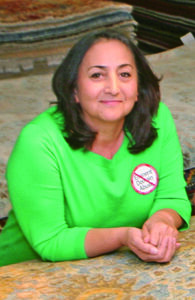
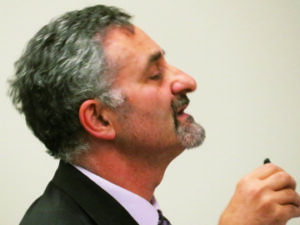
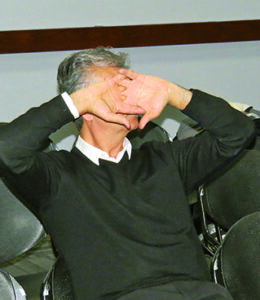 The IEC argues that it is subject to no ethical rules or standard of conduct because Amendment 41 was an amendment to the State Constitution and is therefore superior to the laws of the state. Amazingly the Colorado Court of Appeals agreed. M.A.K. Investments LLC d/b/a Persian and Oriental Rugs had brought a flurry of lawsuits against the City of Glendale starting in 2015 to try to get Glendale to approve a colossal apartment building. Glendale was successful in getting all of the lawsuits dismissed. At the same time, M.A.K. filed an ethics complaint against a mayor and a councilman in Glendale which it trumpeted to the media but which no could see and which under IEC rules, the IEC would neither confirm or deny.
The IEC argues that it is subject to no ethical rules or standard of conduct because Amendment 41 was an amendment to the State Constitution and is therefore superior to the laws of the state. Amazingly the Colorado Court of Appeals agreed. M.A.K. Investments LLC d/b/a Persian and Oriental Rugs had brought a flurry of lawsuits against the City of Glendale starting in 2015 to try to get Glendale to approve a colossal apartment building. Glendale was successful in getting all of the lawsuits dismissed. At the same time, M.A.K. filed an ethics complaint against a mayor and a councilman in Glendale which it trumpeted to the media but which no could see and which under IEC rules, the IEC would neither confirm or deny.
However, Glendale believed the IEC was scheming for hours behind closed doors to get around the fact the provisions in Amendment 41 expressly deny its jurisdiction over home rule cities and counties that have their own ethical rules and proceedings like Glendale. Colorado Open Meetings Law expressly prohibits such unethical conduct.
Moreover, the IEC appeared to be hiding documents from the public as prohibited by the Colorado Open Records Act.
IEC claimed that it is not subject to such laws as it was formed under an amendment to the state constitution and only “the [state] constitution constrains the IEC….” Notwithstanding, the Colorado Freedom of Informational Coalition, and the Colorado Press Association opposing that interpretation, the Colorado Court of Appeals held in its favor in an unpublished 2020 opinion. . Unpublished opinions are supposed to be for unimportant decisions but it is also a way of hiding opinions that a court is ashamed of.
As pointed out by attorney Josh Weiss it is not clear that anyone could challenge the IEC if it decided to never have another public meeting or make available a single record as “they appear to operate in a special space where they make their own rules but aren’t subject to much review.”
No one is above the law, except the IEC.
Next Edition: Part III, The Glendale Saga


 We’re not throwing shade your way, but it is that time of year when Coloradans love their patio time, taking in the sunsets, and cool summer evenings. But we all know that the sun is intense at our elevation. That’s where a good set of shades, not just for your eyes, but for your home as well, is a good investment.
We’re not throwing shade your way, but it is that time of year when Coloradans love their patio time, taking in the sunsets, and cool summer evenings. But we all know that the sun is intense at our elevation. That’s where a good set of shades, not just for your eyes, but for your home as well, is a good investment. ments with a m
ments with a m aster installer alongside of you during the entire process. “Working with a personal designer that can offer recommendations and professional input, is helpful when it comes to making those hard decisions,” says Kelcy. “Not having to do all this on your own is an important component to this investment.”
aster installer alongside of you during the entire process. “Working with a personal designer that can offer recommendations and professional input, is helpful when it comes to making those hard decisions,” says Kelcy. “Not having to do all this on your own is an important component to this investment.”
















